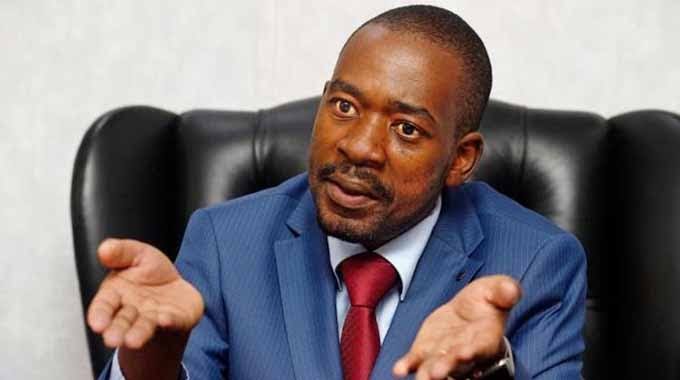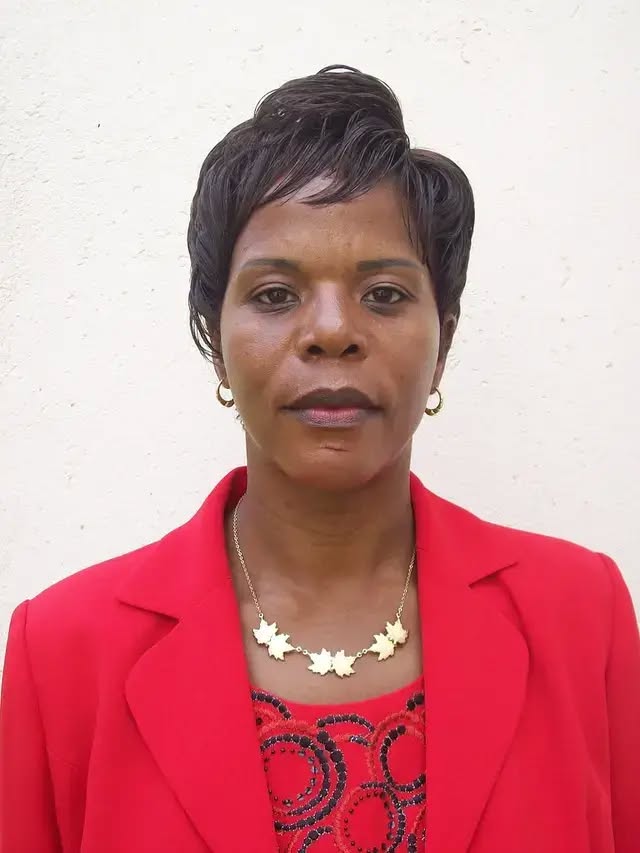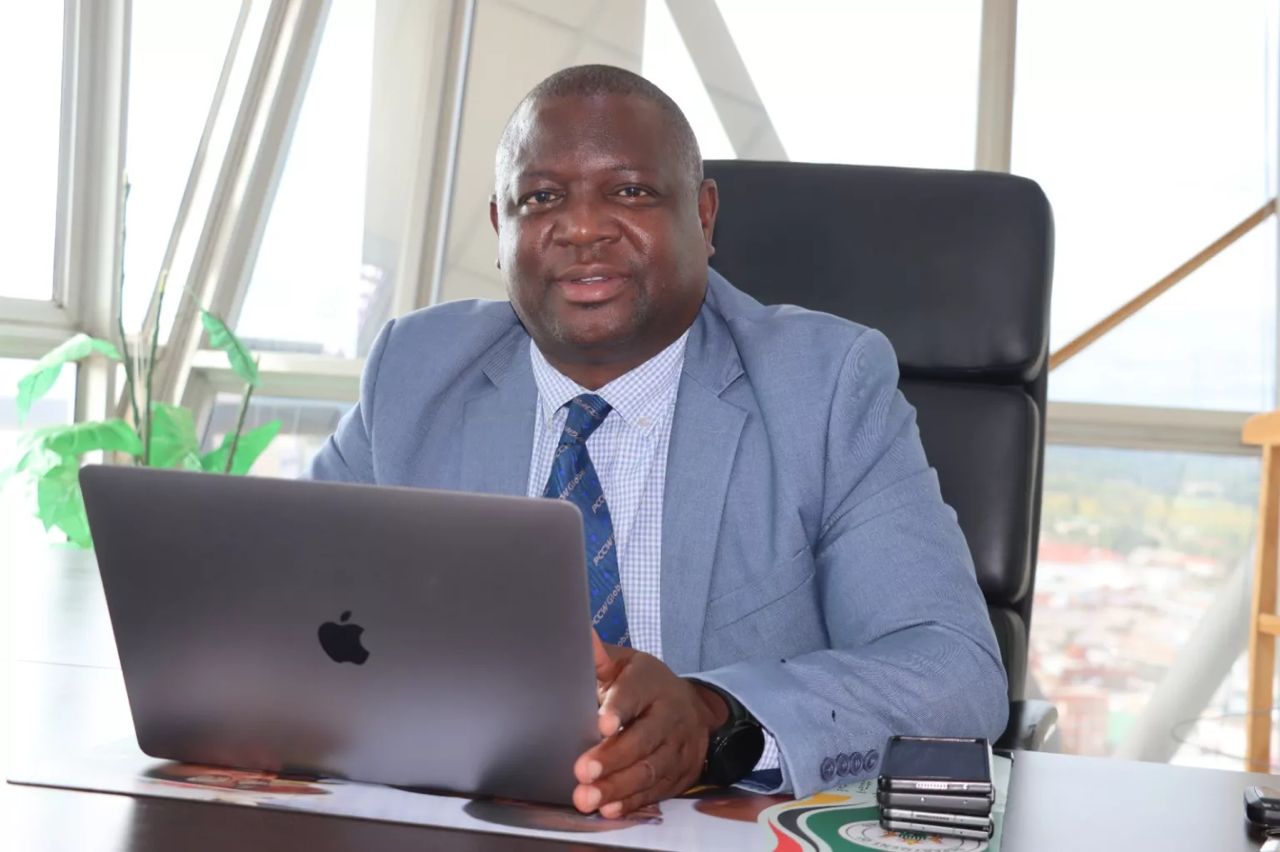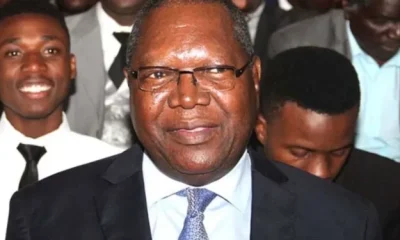Current Affairs
Jason ‘JZ’ Ziyaphapha Moyo: A Life Dedicated to Zimbabwe’s Liberation

Jason Ziyaphapha Moyo, commonly referred to as JZ Moyo, was a prominent Zimbabwean nationalist and liberation icon. He was born in 1927 near Plumtree, a town in southern Rhodesia (now Zimbabwe), close to the Botswana border. Moyo was a member of the Kalanga ethnic group and proudly embraced his cultural identity throughout his life. He received his early education at Mzingwane High School, one of the leading institutions for African students at the time.
After completing his studies, Moyo trained as a builder and carpenter, a profession that would later influence his early involvement in labor and trade union movements. His training in practical trades not only grounded him in working-class realities but also inspired his political ideology, which was rooted in the fight for justice, equality, and dignity for African workers under colonial oppression.
Introduction to Activism and Trade Unionism
In the early 1950s, Moyo moved to Bulawayo, where he became actively involved in the burgeoning African trade union movement. He rose through the ranks to become General Secretary of the African Artisans’ Union, a position that gave him significant influence among urban African workers. His leadership in this capacity exposed him to wider nationalist politics and shaped his belief in mass mobilization as a tool for political change.
Rise in Nationalist Politics
Moyo’s political journey began in earnest when he joined the Southern Rhodesian African National Congress (ANC), the first major nationalist organization in the country. In 1957, he became Chairman of the Bulawayo Branch of the ANC. His work attracted the attention of colonial authorities, and he was arrested and detained on 26 February 1959. Following his initial three-month detention, he was re-arrested under the harsh Preventive Detention Act and imprisoned at Marandellas (now Marondera) Prison, where he remained until his release in 1960.
Despite the repression, Moyo’s commitment never wavered. He was elected to the National Executive Committee of the National Democratic Party (NDP) in November 1960. When the NDP was banned in December 1961, he joined the newly formed Zimbabwe African People’s Union (ZAPU) and was appointed its National Treasurer in 1962.
Exile and Continued Struggle
When ZAPU split in 1963 following internal disagreements, Moyo remained loyal to Joshua Nkomo, the party’s founding leader. He was appointed Financial Secretary of the People’s Caretaker Council (PCC) — the interim structure formed by ZAPU members after the ban. Soon after, he was appointed to the External Executive Council and relocated to Lusaka, Zambia, where he would live in exile for the rest of his life.
From Lusaka, Moyo played a crucial role in mobilizing international support for Zimbabwe’s liberation movement. He helped to organize and expand ZAPU’s military wing, the Zimbabwe People’s Revolutionary Army (ZIPRA), and acted as a strategic leader in both military and diplomatic spheres. He was instrumental in ZIPRA’s early development, helping build its infrastructure, recruitment networks, and political alliances.
Political Leadership and Unity Efforts
In 1974, Moyo became a member of the ANC External Committee, and two years later, in April 1976, he was appointed Second Vice-President of the ANC (Nkomo faction), responsible for external affairs. In this capacity, he was granted full powers to manage military operations, effectively becoming the top commander of the liberation war outside Zimbabwe’s borders.
Moyo worked tirelessly to coordinate ZAPU’s political and military strategies, advocate for increased military support from the Organization of African Unity (OAU), and build alliances with sympathetic African nations, including Zambia, Mozambique, and Angola. He also played a crucial role in fostering unity between ZIPRA and ZANU’s military wing (ZANLA), advocating for the creation of a Patriotic Front — a united front that would eventually bring ZANU and ZAPU together in negotiations for Zimbabwe’s independence.
Suspension and Political Tensions
In September 1975, tensions within the liberation movement reached a boiling point. Moyo, along with other ZAPU leaders, was suspended from the ANC by Bishop Abel Muzorewa, largely due to disagreements over leadership and strategy. Despite this, Moyo maintained his leadership role in ZAPU and continued to push for military and political consolidation.
Later in 1976, he was appointed a delegate to the Geneva Conference, a major international forum aimed at resolving the Rhodesian crisis. His presence there underscored his importance as a diplomatic strategist and a key player in the nationalist movement.
Assassination and Legacy
On 22 January 1977, Moyo was killed by a parcel bomb in Lusaka, just hours after returning from a trip to Maputo, Mozambique. He had earlier criticized the lack of military support from frontline states and the OAU, calling for more robust assistance in the liberation struggle.
His assassination sent shockwaves throughout the liberation movement. The perpetrators of the bombing were never definitively identified, though suspicion fell on Rhodesian intelligence services and internal enemies. His death was a significant blow to ZAPU and the broader nationalist movement.
Posthumous Recognition
Jason Moyo was a confirmed bachelor, known for his discipline, dignity, and strong moral values. He was also a proud member of the Varozwi clan, considered to be the “kingmakers” in Shona tradition.
On 11 August 1981, four years after his assassination and one year after Zimbabwe gained independence, Moyo’s remains were repatriated and reburied at the National Heroes Acre in Harare — a symbolic resting place for Zimbabwe’s most revered liberation fighters.
Positions Held
-
1957: Chairman, ANC Bulawayo Branch
-
1962: National Treasurer, ZAPU
-
1963: Financial Secretary, PCC
-
1963–1976: External Representative, ZAPU
-
1974: Member, ANC External Committee
-
1976: Vice President (External Affairs), ANC (Nkomo)
-
1976: Chairman, ANC External Mission
-
1976: Delegate to the Geneva Conference
Jason Ziyaphapha Moyo’s life and work reflect the sacrifice, courage, and determination that defined Zimbabwe’s liberation struggle. From humble beginnings as a builder and unionist, Moyo emerged as a key political strategist, military organizer, and unifying figure in the fight against colonial rule. Though his life was tragically cut short, his legacy lives on — not only in history books and memorials but in the very foundation of an independent Zimbabwe.
Current Affairs
Chamisa Leaves Flock Behind

Former Zimbabwean opposition leader turned social media activist Nelson Chamisa has enrolled for a two-year doctoral programme at the University of Oxford, sources close to him have confirmed.
The development comes months after Chamisa announced his withdrawal from frontline politics, leaving many of his supporters uncertain about the future of the Citizens Coalition for Change (CCC), the party he founded in 2022.
A close associate told Hurumende News Hub that Chamisa’s decision to pursue studies abroad signals “a new chapter” in his life, while deepening questions about his long-term role in Zimbabwean politics.
“Chamisa has left his followers behind to focus on a PhD at Oxford. He believes this is the right time to reflect, retool, and prepare for new opportunities,” the source said.
Chamisa, once considered the face of opposition politics in Zimbabwe, shocked many in January 2024 when he announced he was stepping down as CCC leader, citing infiltration and lack of accountability within the movement.
Since then, he has maintained an active presence on social media, but his formal political activities have been minimal.
Chamisa, a lawyer and pastor by training, rose to prominence as a youthful protégé of the late MDC leader Morgan Tsvangirai.
He narrowly lost the disputed 2018 presidential election to President Emmerson Mnangagwa and has remained a polarising figure in Zimbabwean politics ever since.
His decision to leave the political stage has left many of his followers without clear leadership, with internal divisions continuing to fracture the opposition movement.
This Oxford enrollment could mark a permanent exit from active politics, while others believe he may return with renewed strategy and international clout.
For now, Chamisa’s political future remains uncertain, but his academic pursuit in the United Kingdom signals a definitive shift away from the turbulent terrain of Zimbabwe’s opposition politics.
Current Affairs
Nyamupinga: Prison Alone Not Enough, Castrate Rapists

A female legislator has sparked debate in Parliament after proposing the castration of convicted r@pists, especially repeat offenders, as a way to curb rising cases of s@xual violence.
Goromonzi West Member of Parliament, Beata Nyamupinga, raised the issue during Tuesday’s National Assembly sitting, urging lawmakers to urgently introduce tougher measures to safeguard women and children.
Her appeal came in the wake of two disturbing cases that drew widespread outrage the r@pe of a Grade 7 girl by a tout at Harare’s Rezende bus terminus, and a viral video showing two teenage boys allegedly gang-r@ping a 17-year-old girl.
“We are crying over the issue of rape. We are grieving as women of this country. The whole nation is not happy to see a grown man having s@xual intercourse with a young child,” Nyamupinga told Parliament.
She further encouraged her female colleagues to lobby President Emmerson Mnangagwa directly, stressing that traditional prison sentences were not enough since many offenders re-offend after release.
“Can we have something as a matter of urgency to ensure that if somebody is caught having s@xual intercourse with a minor, they should be castrated. If he maintains that manhood, he will not have the discipline to stop,” she argued.
Nyamupinga’s remarks received applause across the House, with many MPs acknowledging the seriousness of the issue.
Acting Speaker Joseph Tshuma condemned the abuse of minors as “incomprehensible and appalling” and advised Nyamupinga to introduce a Private Members’ Bill to push for tougher penalties, including possible life imprisonment for child r@pists.
“While Zimbabwe has abolished the death penalty, certain crimes, particularly the rape of minors, demand severe consequences,” Tshuma said.
Current Affairs
Masunda Fingered as Mastermind in NetOne CEO Fraud Storm

NetOne CEO Raphael Mushanawani is under arrest over US$1.2 million fraud allegations, but his lawyers say it is a “political hit job,” with Learnmore Masunda as the mastermind behind the arrest.
In a strongly worded letter to the Zimbabwe Anti-Corruption Commission (ZACC), Mushanawani’s lawyer, Admire Rubaya, dismissed the charges as fabricated.
“Our client is a victim in a well-orchestrated ploy to extirpate him from the helm of NetOne,” Rubaya wrote, adding that the accusations were linked to internal power struggles.
He claimed that some individuals eyeing Mushanawani’s position had “name-dropped very powerful individuals” but stressed that “there is no involvement of any such political figures.”
ZACC alleges Mushanawani engaged Lunartech Solutions (Pvt) Ltd to upgrade NetOne’s SAGE 1000 system without board approval, despite the company already having a US$3.5 million contract with Farevic Systems (Pvt) Ltd for a new Enterprise Resource Planning (ERP) system.
But the defense insists the upgrade was necessary and board-approved.
“An upgrade to SAGE L200 was imperative and a viable alternative to ensure continued operations and avoid hacking risks,” the lawyers argued, saying the two systems needed to run concurrently until the ERP was fully functional.
They further argued that the SAGE upgrade was part of NetOne’s 2025 Strategic Plan to modernise its technology infrastructure.
The lawyers also rejected ZACC’s claim that Mushanawani authorised fraudulent addendums worth US$1.2 million.
“The only payments made are US$184,800 and US$88,002.57,” the letter stated.
On the allegation that Mushanawani approved an unapproved US$79,467 consultancy deal with Diztech (Pvt) Ltd, the defense was equally dismissive.
“No contract was ever signed and not a dime has been paid,” the lawyers responded.
Concluding their defense, Mushanawani’s legal team said he was being unfairly targeted.
“Our client is being victimised for doing things right and acting in the best interests of his principal. ZACC must disregard the machinations of his detractors,” Rubaya added.
-

 Crime and Courts3 days ago
Crime and Courts3 days agoMasasi High School Abuse Scandal Sparks Public Outcry
-

 Crime and Courts7 days ago
Crime and Courts7 days agoKuwadzana Man Jailed for Reckless Driving and Driving Without a Licence
-

 Current Affairs2 months ago
Current Affairs2 months agoBreaking: ZIMSEC June 2025 Exam Results Now Available Online
-

 Current Affairs1 month ago
Current Affairs1 month agoMunhumutapa Day: Zimbabwe’s Newest Public Holiday Set for Annual Observance
-

 Current Affairs4 weeks ago
Current Affairs4 weeks agoGovernment Bans Tinted Car Windows in Nationwide Crime Crackdown
-

 Current Affairs6 days ago
Current Affairs6 days agoVehicle Emissions on the Rise in Harare, A Growing Concern
-

 Current Affairs2 weeks ago
Current Affairs2 weeks agoExposed: Harare GynecologistChirume Accused of Negligence, Extortion, and Abuse
-

 Current Affairs2 months ago
Current Affairs2 months agoNo VP Change: Government Rejects Mutinhiri Appointment Rumours



